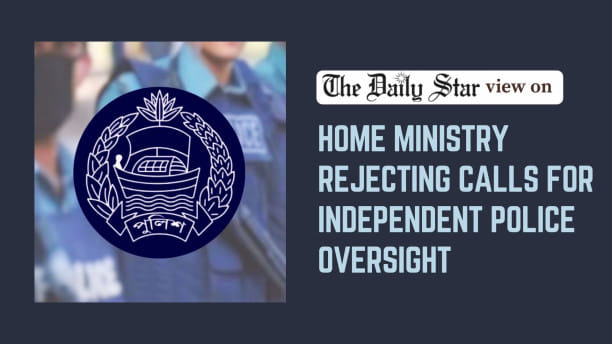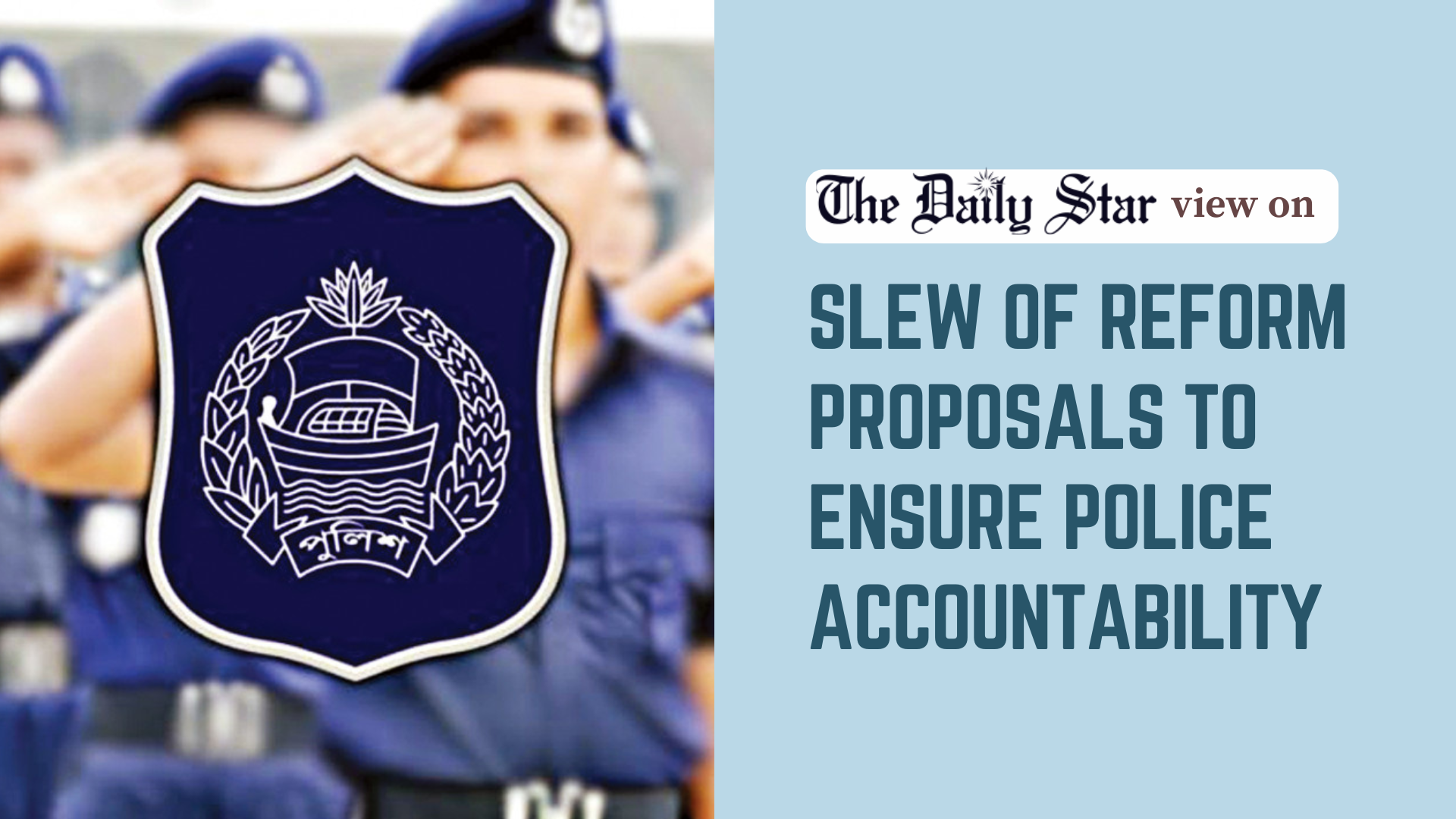We do need a separate police commission

We are baffled by the position taken by the Ministry of Home Affairs regarding the formation of an independent commission to ensure transparency and accountability in police conduct. According to a report by this daily, the ministry claimed there was no need for such a commission as it already performs this role. Given the police's track records over the past years—especially during Awami League's 15-plus-year rule, and particularly during the July mass uprising—we fail to understand what made the ministry so confident about its own oversight role or capacity.
The proposal to establish this independent body was put forth in January by the Police Reform Commission—one of many extensive measures proposed to the interim government to overhaul the police force. These measures also include regulating police use of force against civilians in line with UN peacekeepers' rules of engagement, combating custodial torture, extortion, legal harassment, arbitrary arrests, and enforced disappearances through modern and technologically advanced means, and amending existing police laws. The goal is to make the force pro-people, accountable, and neutral—not to mention freeing it from the undue influence wielded by the government of the day. Such influence never bodes well, as we know from our experience under the previous regime, when the force was blatantly misused to serve its political interests.
Why, then, is the ministry opposed to independent oversight when one of the interim administration's core goals is to introduce reforms that eliminate past failures in governance, law enforcement, and justice? Why—when the government claims to be establishing a just, modern system—does the ministry insist on retaining the Police Act, formulated in 1861, or the Code of Criminal Procedure, enacted in 1898? Why is it refusing to acknowledge that drastic—rather than cosmetic—measures are necessary to restore police image and credibility?
We fail to see the logic behind the home ministry's position. Most of the reform measures, including the establishment of an independent police commission, were suggested not just by the Police Reform Commission, but also by experts over time and even by the UN. More importantly, the people demand a complete overhaul of the force. So we urge the home ministry to reassess its position and make decisions that align with public interests, which, in this instance, lie in the formation of an independent police commission.



 For all latest news, follow The Daily Star's Google News channel.
For all latest news, follow The Daily Star's Google News channel. 


Comments